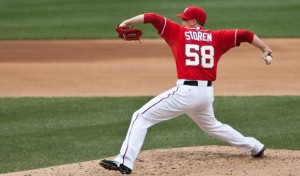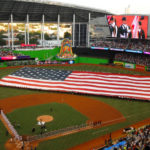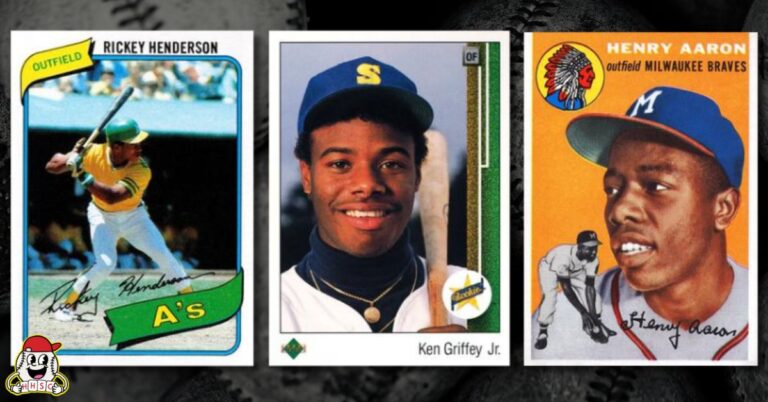Think back to last season, and how a few of your leaguemates had begun to forget to set their lineups in August, and how a few of your leaguemates spent weeks complaining about a certain rule. So now is as good a time as any, before your draft and with your owners attentive, to make …
8 Great Fantasy Baseball League Ideas
Think back to last season, and how a few of your leaguemates had begun to forget to set their lineups in August, and how a few of your leaguemates spent weeks complaining about a certain rule. So now is as good a time as any, before your draft and with your owners attentive, to make some rule suggestions.
Here are a couple handfuls of suggestions to help add some spice to your league. Think of it as putting sexy lingerie on your wife – or better yet, on Brad Pitt’s wife!
Modest Proposals:
8 Fantasy Baseball League Ideas
Don’t think about all of these suggestions together, but think of them individually. Your league might not be able to use all of them – or any of them – but feel free to think outside the box. Also, please feel free to come up with another cliché that’s not as overused as “Thinking outside the box.”
May Day Fantasy Draft
The season is six long months – a marathon, if you will. If you’re unable to pick up any players in that first month, imagine how exciting a draft would be on May 1, after everyone’s had over four weeks to watch all 30 MLB teams. From worst-to-first, think of how much a team that’s been dealt a major injury blow can get right back into the fight. Last year, you might have seen a May Day Draft that included players like Alex Avila, Kyle Farnsworth, Matt Joyce, Cameron Maybin, Yadier Molina, Mitch Moreland, Ivan Nova, Michael Pineda and Drew Storen.
Split-Season Draft
The night of the MLB All-Star Game, get your owners all back together for another Fantasy draft. Everyone throws all but five players back into the pool and re-drafts the rest of their team. The standings from the first split-season will be recorded, and then you’ll start from scratch on stats for the second split-season. Not only does this keep everyone interested later into the season, but it gives people hope after they lose a Joe Mauer or an Adam Wainwright early on. At the end of the season, combine the Rotisserie totals (not the stats themselves) to get the 2012 League Champion! (You can also praise the winners of either of the split seasons – who very well might not be the overall champ.)
Prospecting During the Prospects Draft
For keeper leagues, consider instituting a rule in which the only players allowed to be drafted or picked up during the season are players on the 25-man roster. Then, sometime in mid-August, after the MLB trade deadline and before rosters expand to 40 players, hold a “Prospects Draft.” This is a draft in which any player that joined the majors AFTER Opening Day or are still in the minors are eligible. Again, do it in a worst-to-first order, and you’ll finally see some excitement in the eyes of the 11th- and 12th-place teams’ owners.

Losers Need Love Too
This rule is for the not-so-serious, fun-loving crowd of Fantasy Baseball owners. Think about adding both Losses and Strikeouts (for hitters) to your Rotisserie categories. Even if you just track them on the side, and give fractions of Rotisserie points, it would just make an interesting twist to see a Bizarro spot added to your lineup. Finally, J.A. Happ and Scott Sizemorehave some value! Think of it like when you play the card game “Pitch” and you go for the Low Card.
Dumping Allowed – In My Bank Account!
In non-keeper leagues, most owners aren’t allowed to dump players because good teams will snatch them up for an unfair advantage. So what if we let teams turn into the New York Bankees, and start buying players from less fortunate teams? On August 1, after the MLB trade deadline, let owners sell players to the highest bidders. So if you drafted Michael Bourn and the rest of your team has all of Bourn’s stats minus the steals, then you can turn around and sell Bourn to the highest bidding owner of a team in the hunt. Owners would let the commissioner know which players they would like to bid on, without knowing who everyone else is bidding on. Then the commissioner holds a conference call for each player with the interested owners – and the auction begins! There’s nothing like offsetting your Fantasy league fee by getting back $25 or so for Matt Kemp. How much would you bid on a category-changer like Bourn, with two months left in the season, and you’re hoping to keep him from your closest competitor?
Blind Auction Gets the Season Rolling
A user sent me this interesting twist to their auction about five years ago. Each team submits the name of ONE player at EACH POSITION to the league commissioner, along with his bid on that player. The commissioner compiles all of the lists, and awards players to the highest-bidding owners accordingly. Obviously, there’s lots of strategy involved, but it’s very possible that you could end up with a superstar for $1, only because no other team put in a bid for him. Then, after all the players are doled out, the real auction begins, minus the monies already spent on players.
Keeper Points is a Keeper Idea!
This can actually be a combination of two ideas that readers have sent in over the past decade. First, keepers are designated a point value from the previous season. If they were drafted in the first round, they have 23-point values. The second round gives them a 22-point value, all the way down to the Round 23 players (and free agents) who are worth one point each. Each team can keep 40-points worth of players. That can be a first-rounder (23), a 14th-rounder (10), a 18th-rounder (six) and a free agent (one). Or it can be a first-rounder (23) and a seventh-rounder (17), just as long as it totals up to 40.
The other idea is that keepers and drafted players are then designated into tiers going forward. Any keeper is considered a Tier 1 player. And any player drafted this year in the first six rounds is considered a Tier 2 player. The rest are Tier 3 players. When trades occur in-season, the tiers have to match up. A Tier 1 player is worth: another Tier 1 player, two Tier 2 players or four Tier 3 players. Obviously, it’s still subjective (Albert Pujols is not worth four late-drafted players), but it helps give the league some baselines to work with. (Big thanks to Clay Fees in Kellyville, OK, and Eric Porter in Portland, OR, for those ideas.)
Sandwich Picks For Sale!
At the end of the first round of your draft, let all of the owners bid on the 13th spot of the draft. Now that they’ve seen who is available after the first 12 picks, they all have a shot on the best player available, giving them two players before anyone else. It doesn’t really hurt the teams on the back end of the first round either, since they can also bid on that slot, and end up with three players before anyone else. Then, two more sandwich picks are auctioned off if there are people willing to bid on them. Think of it like buying mulligans during a charity golf tournament! The money spent on those players either goes to the draft host (if it’s live at someone’s house), or back into the kitty for a larger pot at the end. Everybody wins!
Have any great Fantasy Baseball league ideas that you’d like to share?









Comments
Ryan
Has anyone ever seen a site that could handle the split season format described without jury rigging and piecing together?